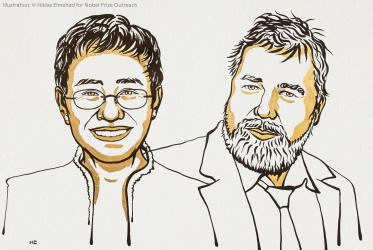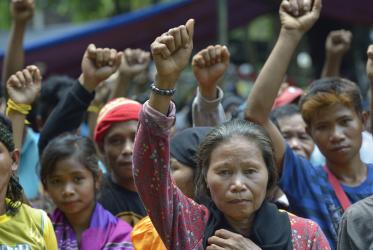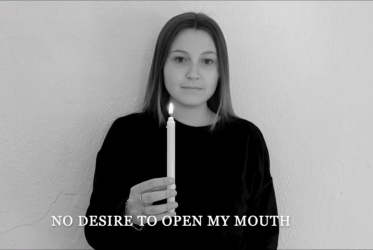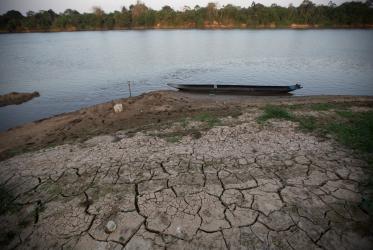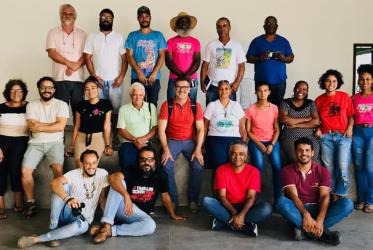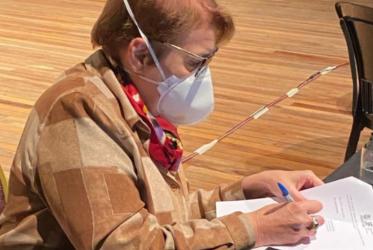Displaying 81 - 100 of 607
11 October 2021
Las mujeres argentinas caminan en solidaridad con las mujeres afganas
23 September 2021
Women in Argentina walk in solidarity with women of Afghanistan
23 September 2021
Brazilian ecumenical water network launched
29 July 2021
Pulling together for a living River Pardo
02 July 2021
